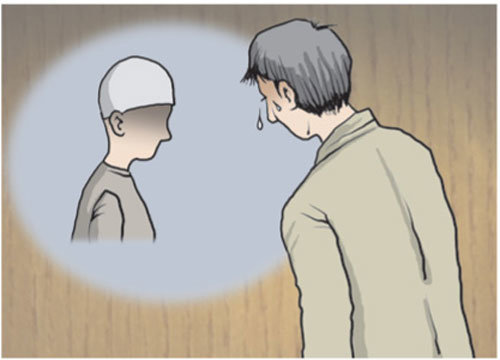Tears of others
Tears of others
Posted September. 29, 2021 07:20,
Updated September. 29, 2021 07:20

There is a South Korean physician who asks for a strange favor in a novel with the backdrop of Belgium titled “I Met Ro Gi-wan” written by South Korean writer Cho Hae-jin. His wife passed away but not because of natural causes. As his wife suffered too much with late-stage liver cancer, he put a glass of alcohol with drugs in her room for her to make a choice of either drinking or not. She chose to finish her own life. Following the event, he quit as a physician and spent five years asking himself whether his action was right.
One day, he asks a narrator who looks similar to his wife, “Can you please tell me it was better than you thought – that it wasn’t that painful?” He is asking if the narrator could tell him if the process of dying from drugs was not as painful as she thought. How could the narrator replace his dead wife regardless of how similar they look and how could she talk about the experience of dying without actually having experienced it?
However, the narrator couldn’t turn away from his request looking at the tears in his gaunt eyes. In his tears, she saw the “end of a life that he had to face and heartbreaking loss” that he had to endure when he reopened the door to his wife’s room after leaving the glass. “It was comfortable as if I was falling asleep. Everything was natural without any consciousness of dying and there was no pain,” she whispered into his ears, imagining herself as his dying wife. What if it’s not true as long as she can comfort him? Then, he touched her face whose eyes and lips looked similar to his wife’s and said, “You went through a lot for your entire life.” He finally got to say goodbye to his wife that he missed.
At first, the narrator criticized him for “exchanging a life for dignity,” basically calling his action a murder, but now she just holds him. Separate from the discourse about the ethics of euthanasia, she reserves judgment in front of his tears. This is the power of “tears of others” that French philosopher Emmanuel Levinas talked about. And it is only ethical to surrender to such tears.







